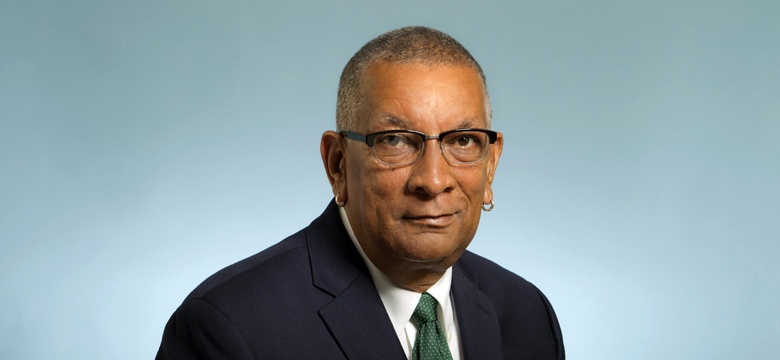
Ministerial Statement by The Minister of Public Works, Lt. Col. the Hon. David A. Burch, OBE (Mil), ED, JP, MP
Good morning, Mr. Speaker.
Mr. Speaker, you will know from the Budget Debate for the Ministry of Public Works that Cabinet recently approved the introduction of revised space standards for Government offices in order to make more efficient use of space and reduce costs.
Mr. Speaker, as part of the Public Service Reform Initiative - Cabinet considered a number of issues in respect of asset management, one of which was the need to ensure that a consistent approach is adopted in the layout, design, finishes and furnishing of Government office accommodations. The goal is to provide effective Government Services in a sustainable, safe and healthy work environment that makes efficient use of space and affords greater value for money.
Mr. Speaker, the existing Government office space standards have not changed for decades and are now considered overly generous and the layouts inefficient compared to the more modern, flexible and collaborative work environments common in the private sector. With annual expenditure of approximately $8.9 million on rents paid to private sector landlords - savings can be had by more efficient use of space both within Government owned buildings and those rented from the private sector. Savings are not limited to rents as other operating costs including electricity and maintenance will also decrease as the space occupied is reduced.
Mr. Speaker, the existing office space standards provide for 250 – 300 square feet for a Minister, 200 – 250 square feet for a Permanent Secretary, 150 square feet for a Director and 100 square feet for staff. In addition to this, a further 15% is provided for circulation space. Conversely, the requirements of the Occupational Safety and Health Regulations 2009 require a minimum of 43 sqft per employee. The revised space standards provide for 200 square feet for a Minister, 150 square feet for a Permanent Secretary, 100 square feet for a Director and 65 square feet for an Officer with no additional allowance for circulation space. The reductions range from 35% for general staff to 66% for Department Heads.
Mr. Speaker, it is further agreed that the layout of Government offices be based on an open plan to make better use of space, improve collaboration and communication as well as provide a more flexible office environment. The offices are to be furnished with "trader style" desks common in the private sector as opposed to the work stations of old that effectively created individual offices. Only Ministers, Permanent Secretaries and
2 Directors are to be provided with a private office. Small conference rooms will also be provided for confidential discussions or meetings with staff.
Mr. Speaker, it is recognised that there are some Government services and operations that do not fit the new office format and have special requirements owing to the nature of those activities. These will be reviewed on a case by case basis and require the written approval of the Minister of Public Works before deviating from the approved space standards.
Mr. Speaker, it won't come as a surprise to you that there has not been widespread acceptance of this new policy throughout the Civil Service – so to set the example – the lead entity in communicating this message – the Estates Department will lead by example and be one of the first departments to transition to an open floor plan that will see the Chief Surveyor and his management team occupy a desk on the office floor.
Mr. Speaker, I have also ordered a complete review of all private sector rental accommodation presently occupied, with a view to reducing those costs dramatically either by moves into government owned accommodation or alternative more economical private sector rentals.
That review has started with some of the legacy private sector rentals and so far H. M. Customs departments presently located in 3 private sector locations at Hamilton Hall, Magnolia House and L. F. Wade International Airport will relocate to offices at 131 Front Street – and before I'm asked – it is owned by the Silver Wood Trust – in which MP Zane Desilva and his family are beneficiaries. It is likely that other Government departments will relocate there as well. The Estates Department have already looked at other available space in the building with a view to other potential moves there.
Mr. Speaker, I can report that the Collector of Customs and her leadership team are excited about the move and have already identified benefits to their operational efficiency by combining these 3 area under one roof.
Finally, Mr. Speaker, I can report that the Bermuda Housing Corporation has entered into an agreement to purchase the IAS Park building at 44 Church Street – where its offices are currently housed for a price of $4.85 million. There are currently two private sector tenants occupying ½ a floor and they shall remain for the time being while the two upper floors, which are vacant, are being prepared to accommodate several government departments from predominantly private sector rentals.
The purchase of the building at 44 Church Street – in close proximity to several Government buildings will also afford us the opportunity to strategically plan office moves with greater flexibility and approach our accommodation needs in a more structured manner. Also housing those government offices that engage in frequent public contact in easily accessible store front spaces. Retro fitting utilities such as office lighting to automatically turn off when offices are not in use will provide additional cost savings.
Mr. Speaker, what these moves afford us are dual savings to the public purse by implementing the new space standards, moving into more economical accommodation and thus limiting increases in government expenditures and ultimately our taxes.
Thank you, Mr. Speaker.
